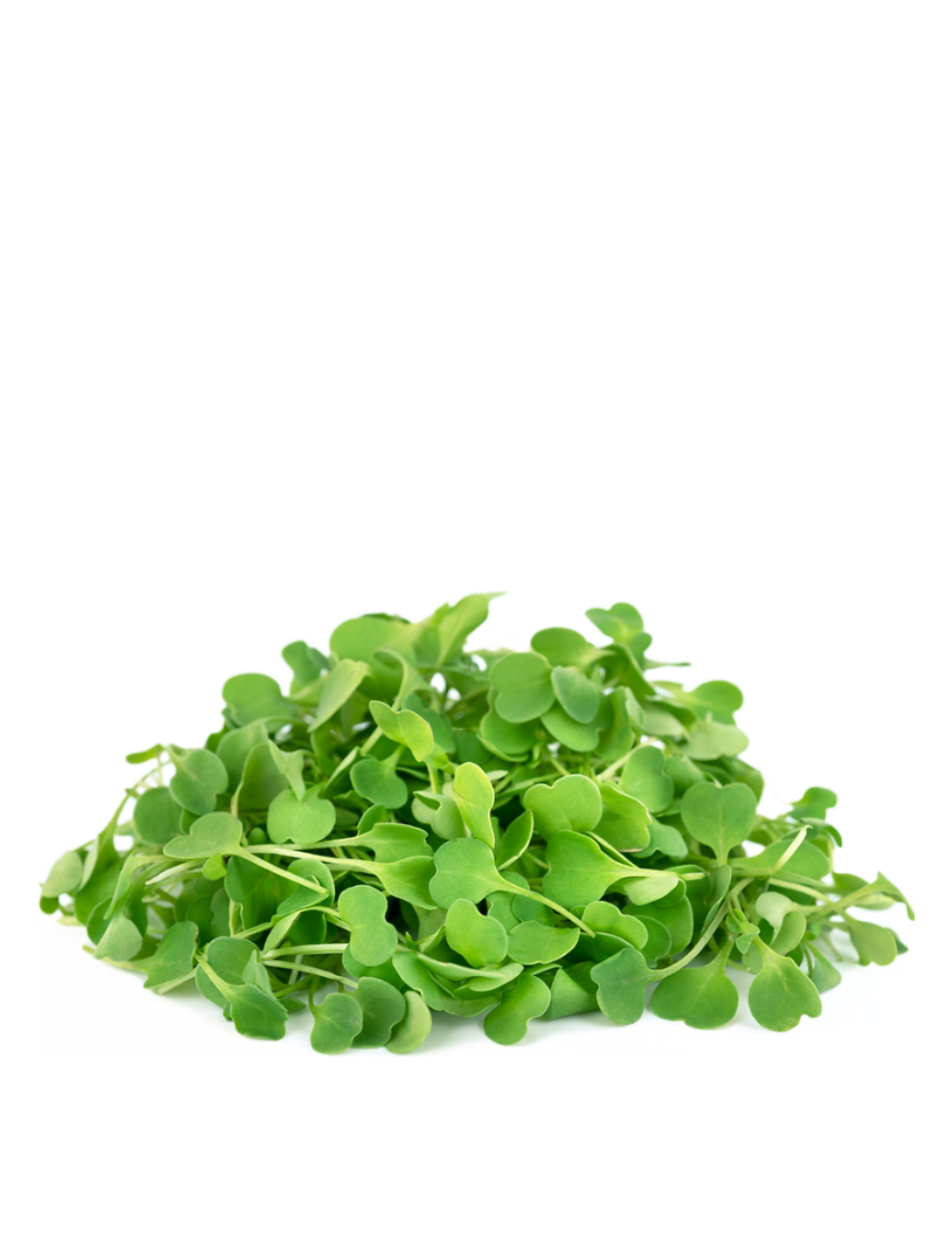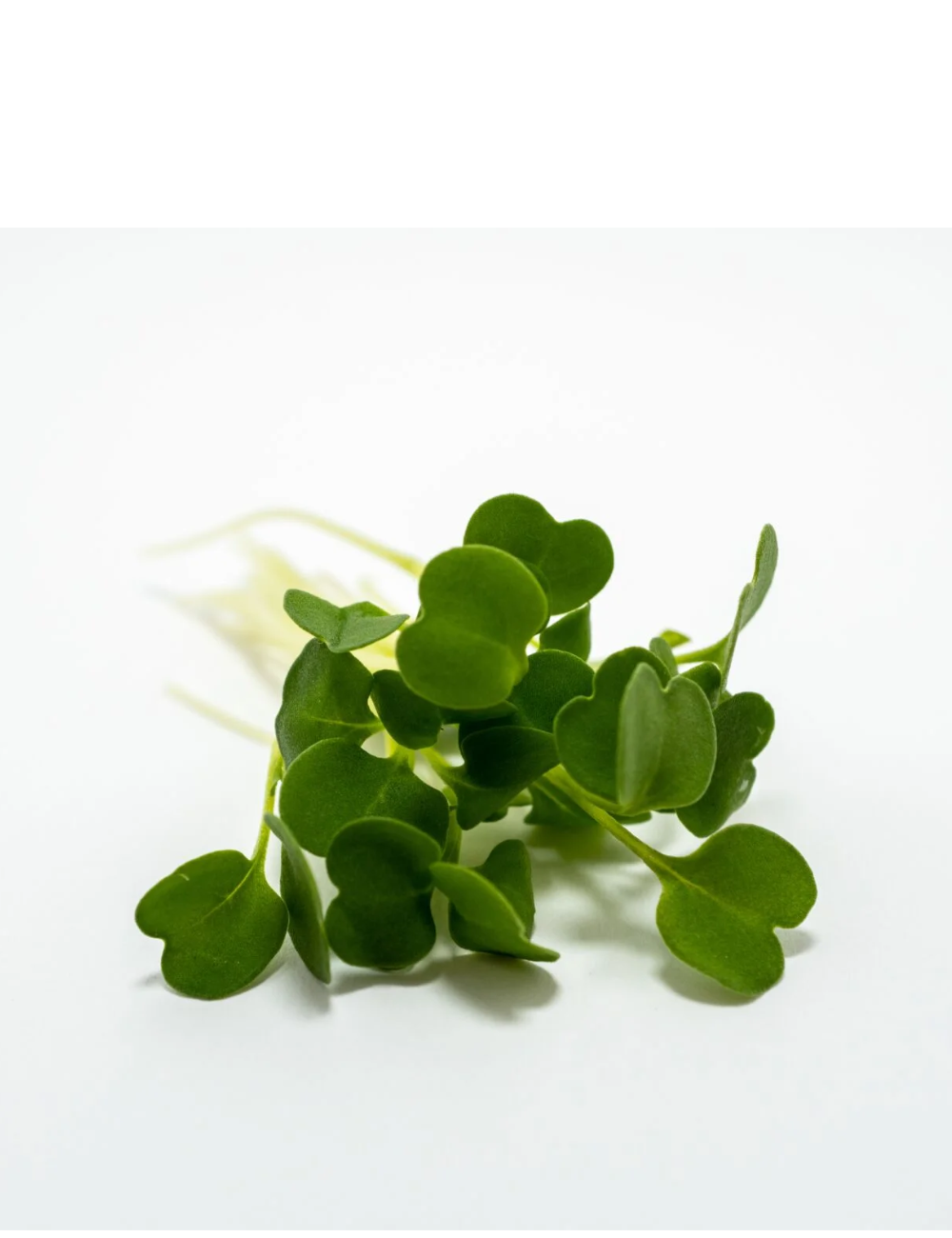Arugula Microgreens, Astro, Heirloom, Non-GMO, 28g
Arugula Microgreens, Astro, Heirloom, Non-GMO, 28g
Starts off slightly nutty and sweet, but quickly fades into a peppery, earthy, and pungent bite.
Nutrition
Nutrition
Arugula microgreens contain almost eight times the calcium, five times the vitamin A, vitamin C, and vitamin K, and four times the iron as the iceberg lettuce. Microgreens are also a rich source of nutrients, vitamins E, L, lutein, and beta-carotene.
Nutritionally, this peppery green is a star. In a whole cup (100g) of fresh arugula leaves, you’ll find just 25 calories, 3.65 grams of carbohydrates, and about 2.5 grams of protein, and 1.6 grams of dietary fiber. Arugula also contains an impressive amount of Vitamin C, Vitamin A, Vitamin K, folate. Talking about minerals, you’ll get plenty of calcium, potassium, magnesium, phosphorous, zinc, and iron from Arugula.
Arugula is known to have a very low level of oxalates as compared to other popular leafy vegetables like spinach. Oxalates inhibit the absorption of minerals by the body’s systems, which is counterproductive to consuming minerals in the same bite. So minerals, like copper and iron, which you get from the plant, are more easily absorbed by the body for efficient use.
Recipe Ideas
Recipe Ideas
As a pizza or baked potato topping
In pasta
In salads
In soups and sauces
Instead of lettuce in sandwiches
In omelets or smoothies
Couldn't load pickup availability



Heart Protector
Arugula contains a good amount of vitamin C, vitamin K, and folate – the heart-friendly nutrients. A two-month trial suggests that subjects who received a daily Vitamin C supplement showed a 24% drop in their plasma CRP (C-reactive protein levels) levels. Scientists believe that CRP may be an accurate indicator of a person’s chances of developing heart diseases.
Vitamin K, in turn, boosts heart health by pushing calcium into the bones, instead of flushing it into your arteries and block circulation. Folate is essential for maintaining homocysteine levels. High homocysteine levels in the blood can increase the risk of cardiovascular diseases.

Eye Health
Beta-carotene – the precursor of Vitamin A – is good for your eyes as it scavenges free radicals to protect the retina. And that’s not the only peeper-protective nutrient in arugula; it also contains lutein and zeaxanthin as well. These two nutrients protect the eyes from high-intensity illumination and UV rays thereby avoiding vision impairments.
According to studies, all these nutrients support the vision and protect against age-related macular degeneration and night vision. Another important nutrient we shouldn’t neglect is Omega 3 fatty acids. Arugula contains 170 mg Omega-3s/ 100 g. Omega-3s act as an antioxidant and cut down the chances of developing a cataract.


